On View
A Long-Delayed Retrospective of Philip Guston’s Acerbic Paintings Finally Opens in London
The controversial exhibition traces the artist’s incredible oeuvre.
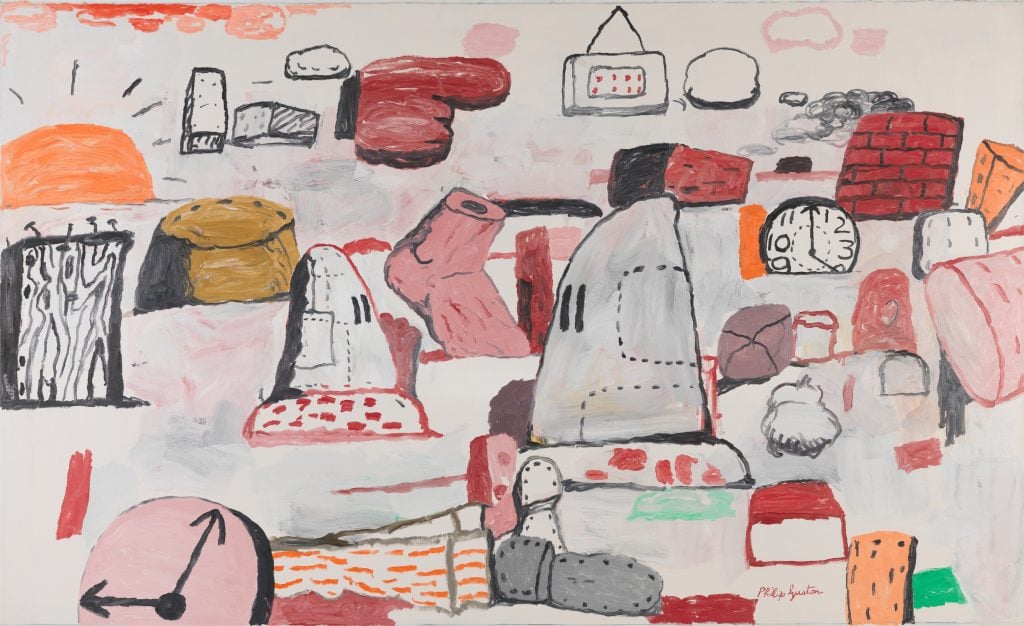
The controversial exhibition traces the artist’s incredible oeuvre.

Jo Lawson-Tancred

This blockbuster show has finally arrived to London several years later than planned. It was first pushed back by the pandemic but, after the #BlackLivesMatter protests of 2020, its curators scrambled to ensure that Philip Guston’s unsettling hooded caricatures of the Ku Klux Klan were handled with due sensitivity.
Driving around town in groups with blank expressions and comically large cigars, these characters are rendered both ridiculous and, crucially, commonplace; just normal people taking part in everyday activities. The images are unambiguously critical of racism in the U.S., so the decision to postpone the show was dogged by controversy. One of its curators, Mark Godfrey, labelled the move “patronizing” on Instagram and was swiftly suspended from Tate Modern before taking voluntary redundancy in 2021.
Now that the show is finally installed, our attention can shift back onto the art itself. What really stands out across some 100 works, is the considerable breadth of Guston’s practice. Born in 1913, the artist spent his 20s and 30s responding to European influences and borrowed from the Old Masters and then-contemporary Surrealists with equal gusto. By the early 1950s, he was swept up in New York’s passion for Abstract Expressionism. These impressive canvases establish his pink-infused palette, but they are most notable for how they allowed Guston—always a figurative painter at heart—to entirely reinvent his style from scratch, starting with simple, monochromatic line drawings.
Only in the final suite of galleries do the painterly cartoons, replete with repeated motifs such as cigars, shoes, ladders, beds, and hands, finally emerge. Though they would push him into relative obscurity, these strangely unique canvases grew in size and ambition and are filled with clues about Guston’s own experiences and outlook. Born to Jewish parents who fled persecution in present-day Ukraine, Guston changed his name from Goldstein in 1935, amid rising antisemitism, and by the latter decades of his life was overcome with fears about latent evil in society. By humanizing its perpetrators, he hoped to turn the lens back on the establishment, everyday people, and himself.
“Philip Guston” is at Tate Modern, London until February 25, 2024. Check out more images from the exhibition below.
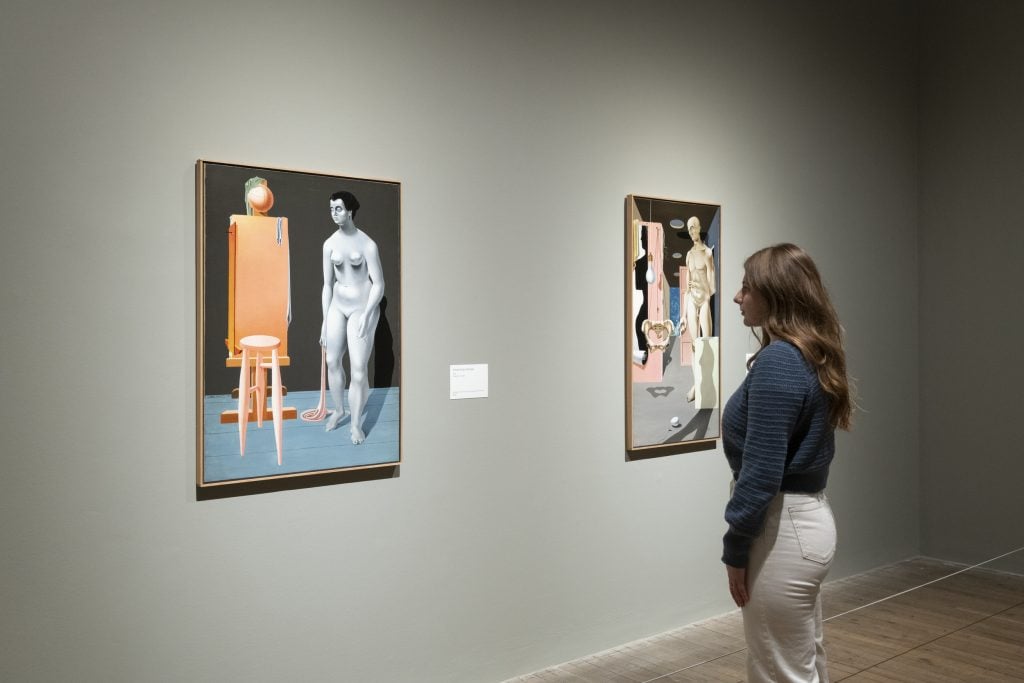
Installation view of Philip Guston exhibition at Tate Modern in 2023. Photo: Larina Fernandes, © Tate.
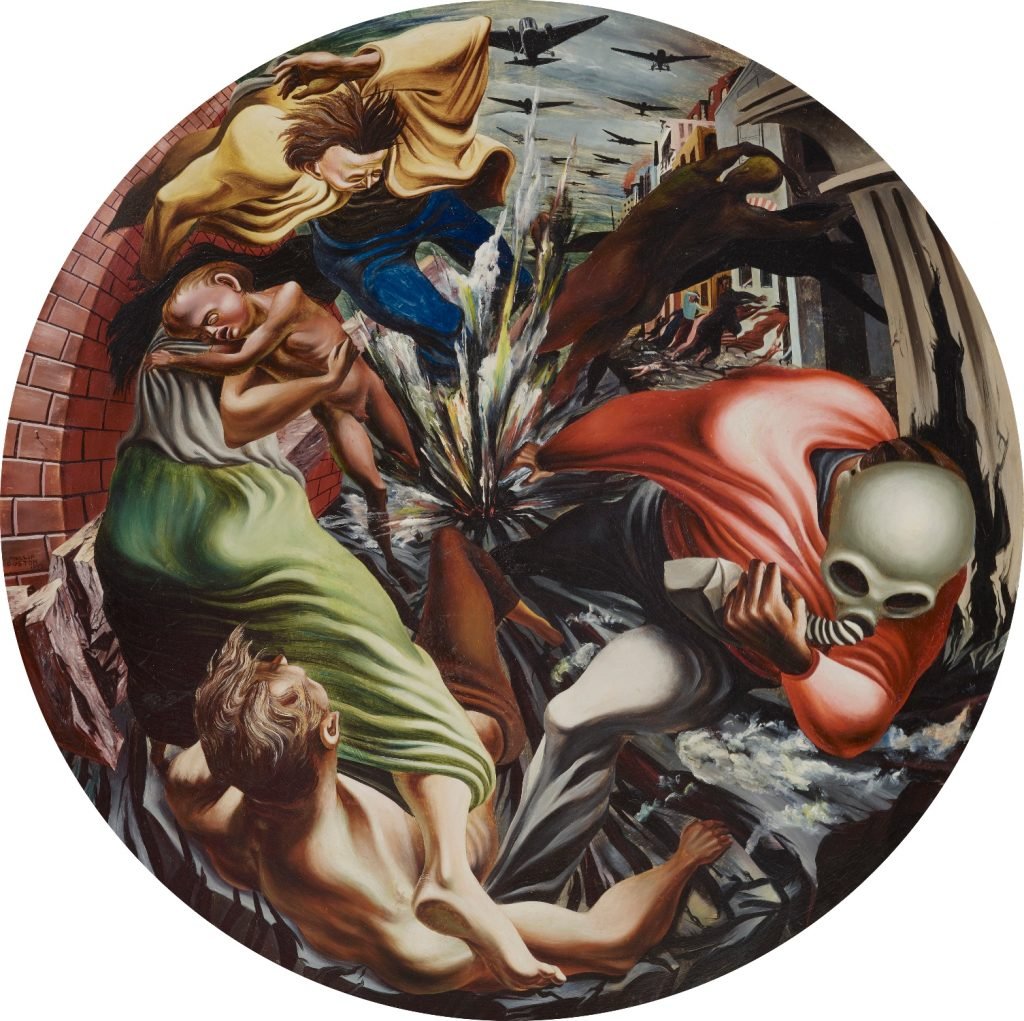
Philip Guston, Bombardment (1937). Photo: © The Estate of Philip Guston.
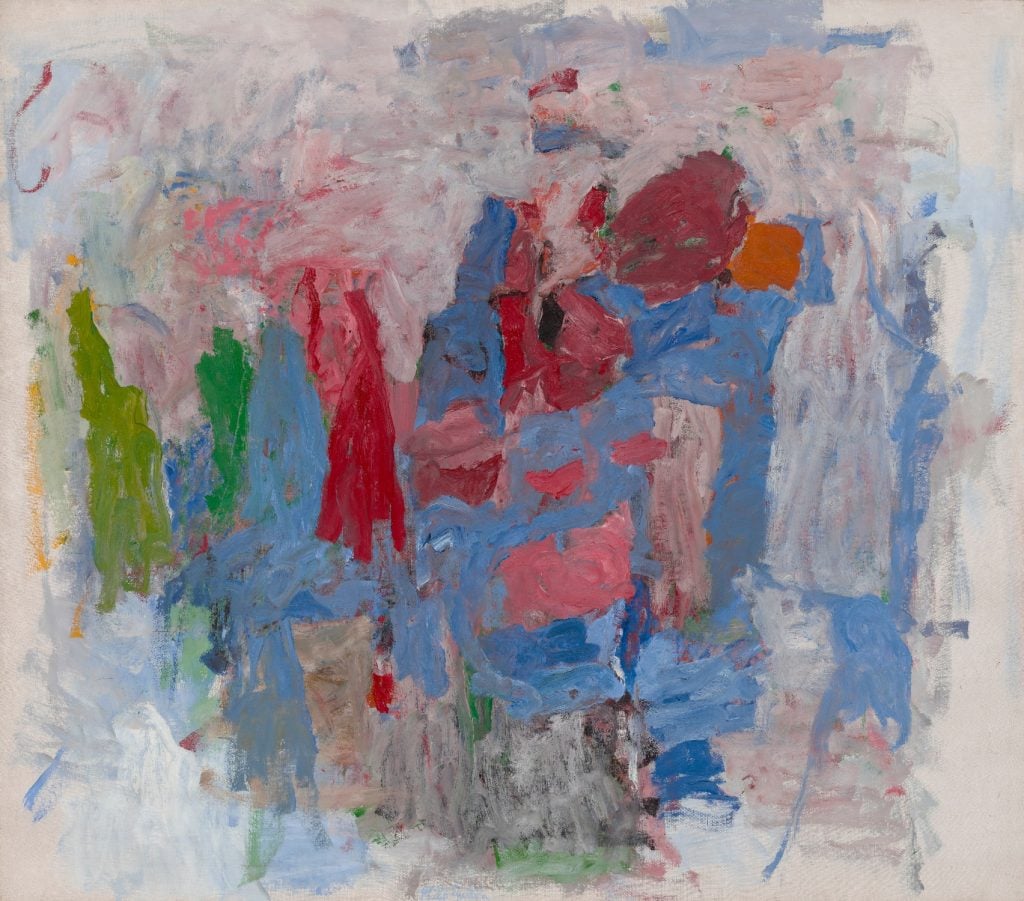
Philip Guston, Passage (1957-58). Photo: Will Michels, © MFAH.
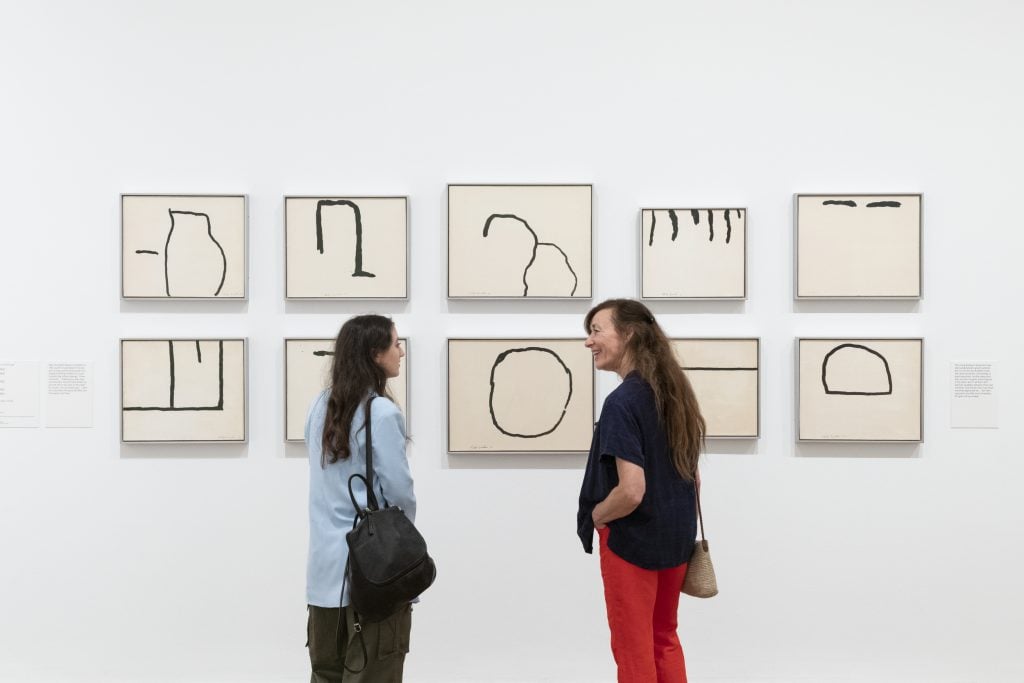
Installation view of Philip Guston exhibition at Tate Modern in 2023. Photo: Larina Fernandes, © Tate.
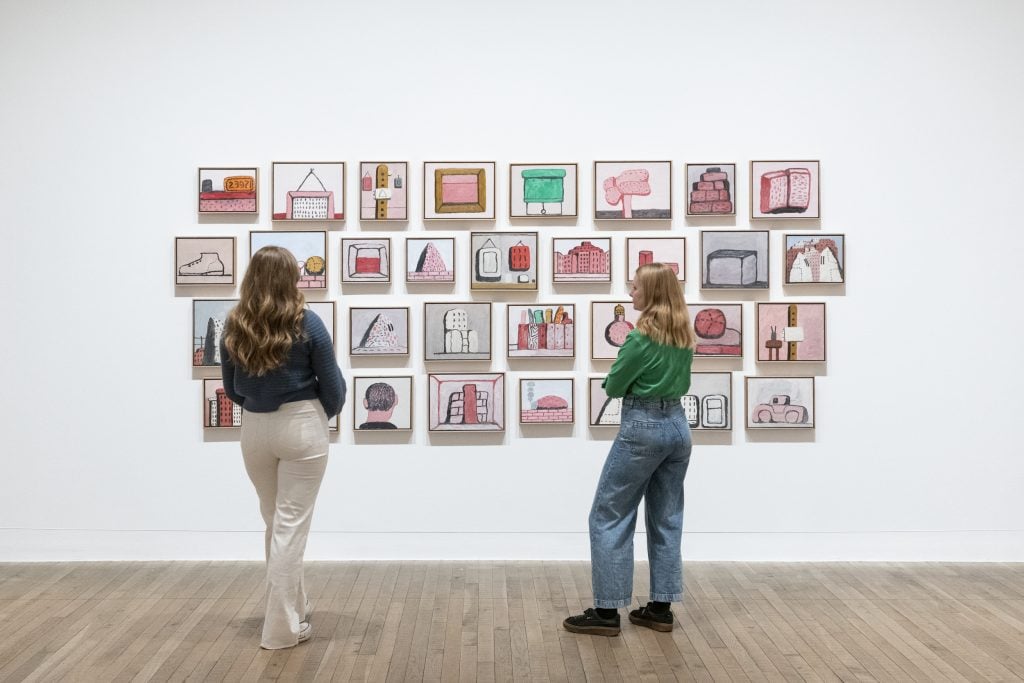
Installation view of Philip Guston exhibition at Tate Modern in 2023. Photo: Larina Fernandes, © Tate.
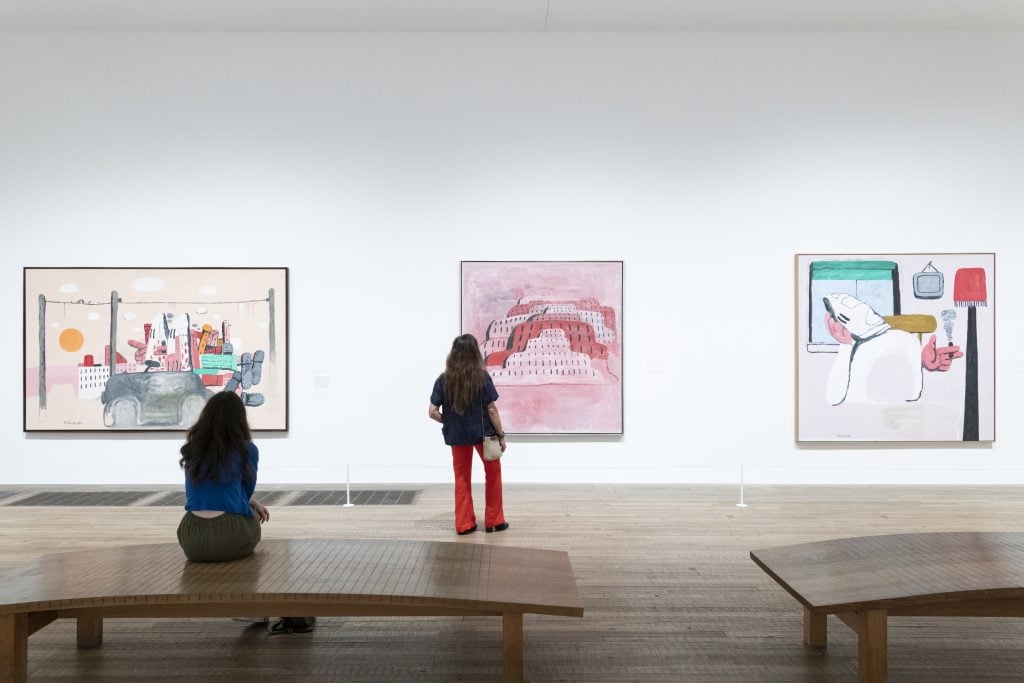
Installation view of Philip Guston exhibition at Tate Modern in 2023. Photo: Larina Fernandes, © Tate.
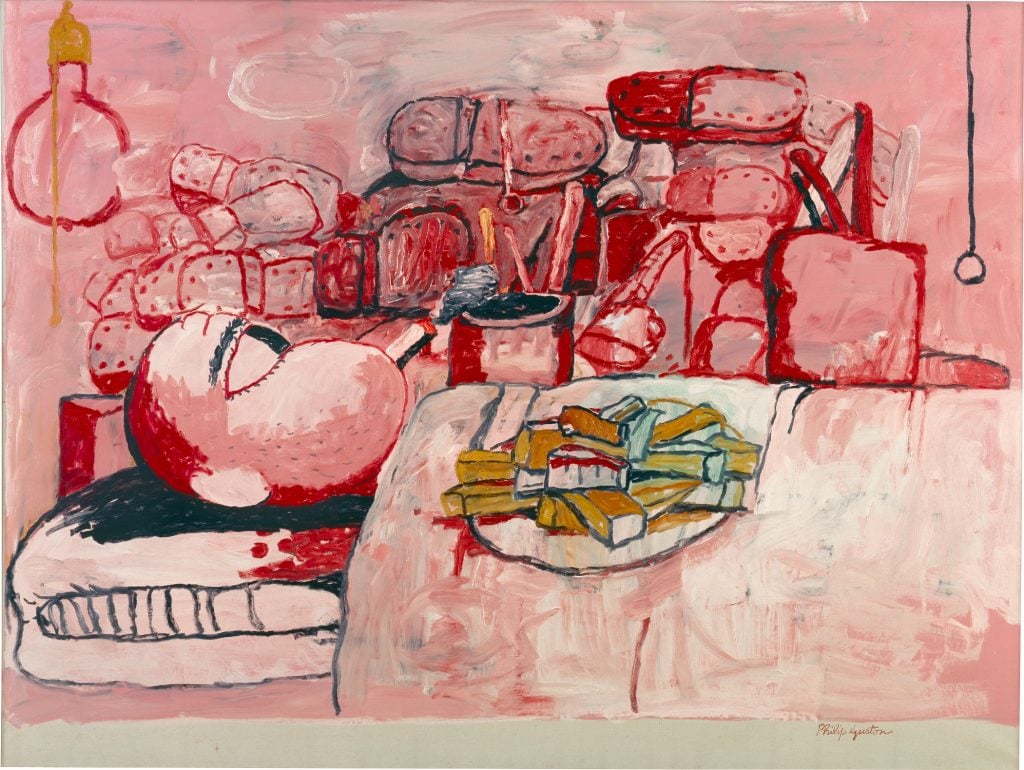
Philip Guston, Painting, Smoking, Eating (1973). Photo: © The Estate of Philip Guston.
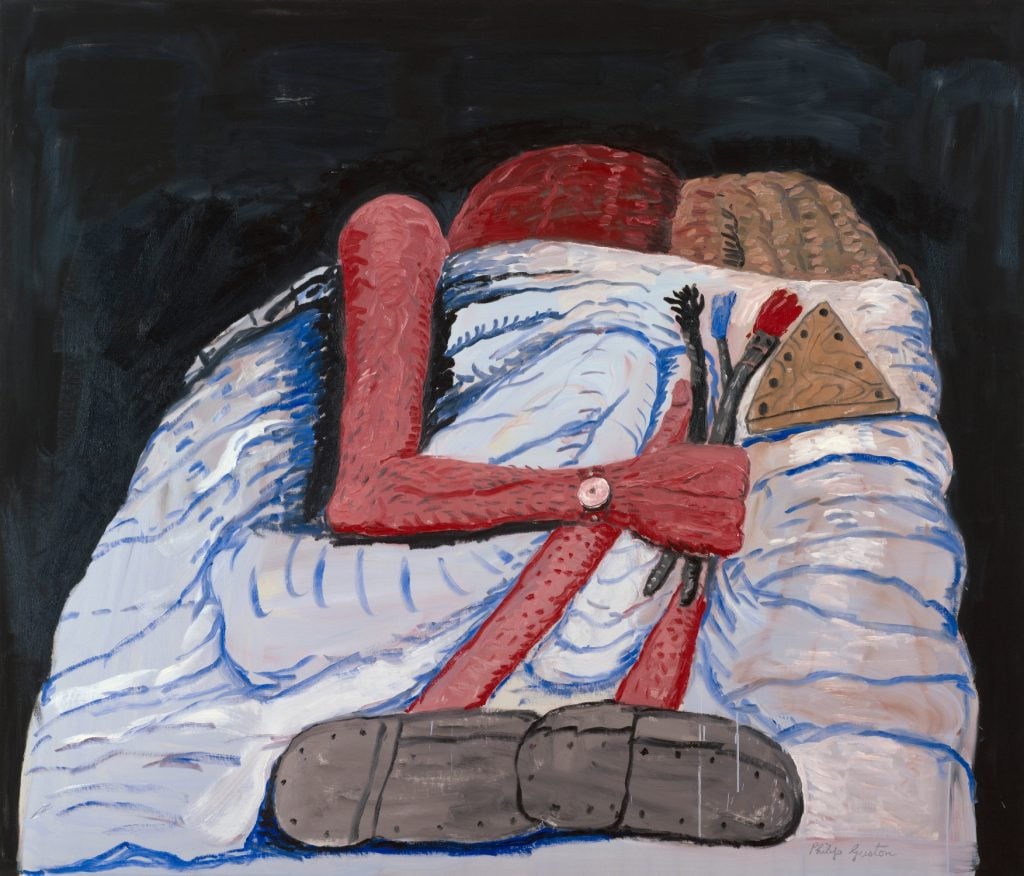
Philip Guston, Couple in Bed (1977). Photo: © The Estate of Philip Guston.
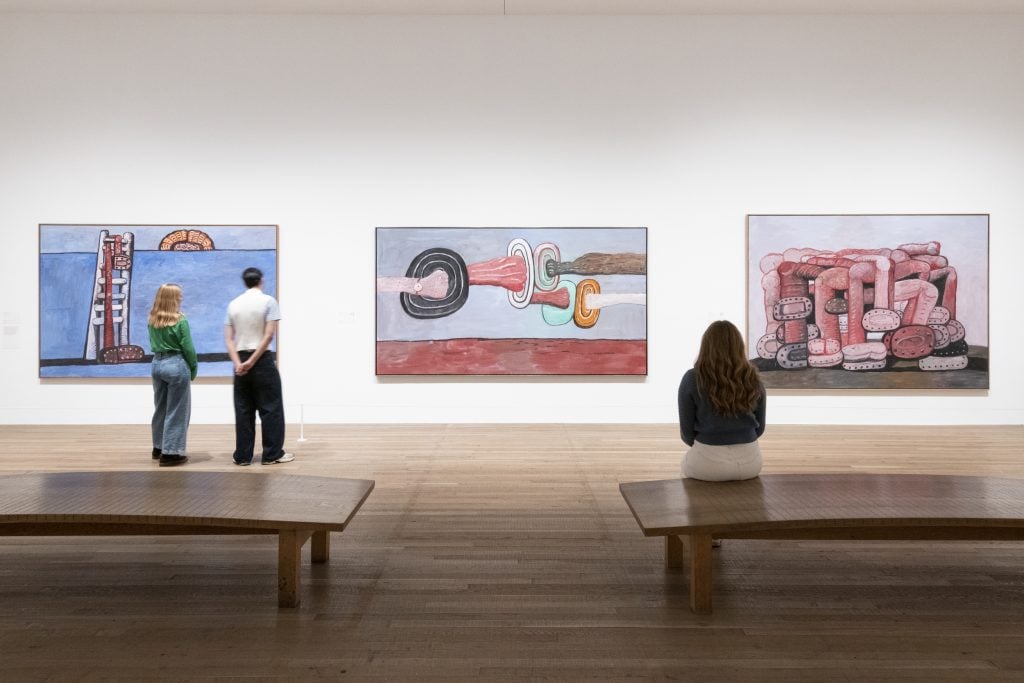
Installation view of Philip Guston exhibition at Tate Modern in 2023. Photo: Larina Fernandes, © Tate.
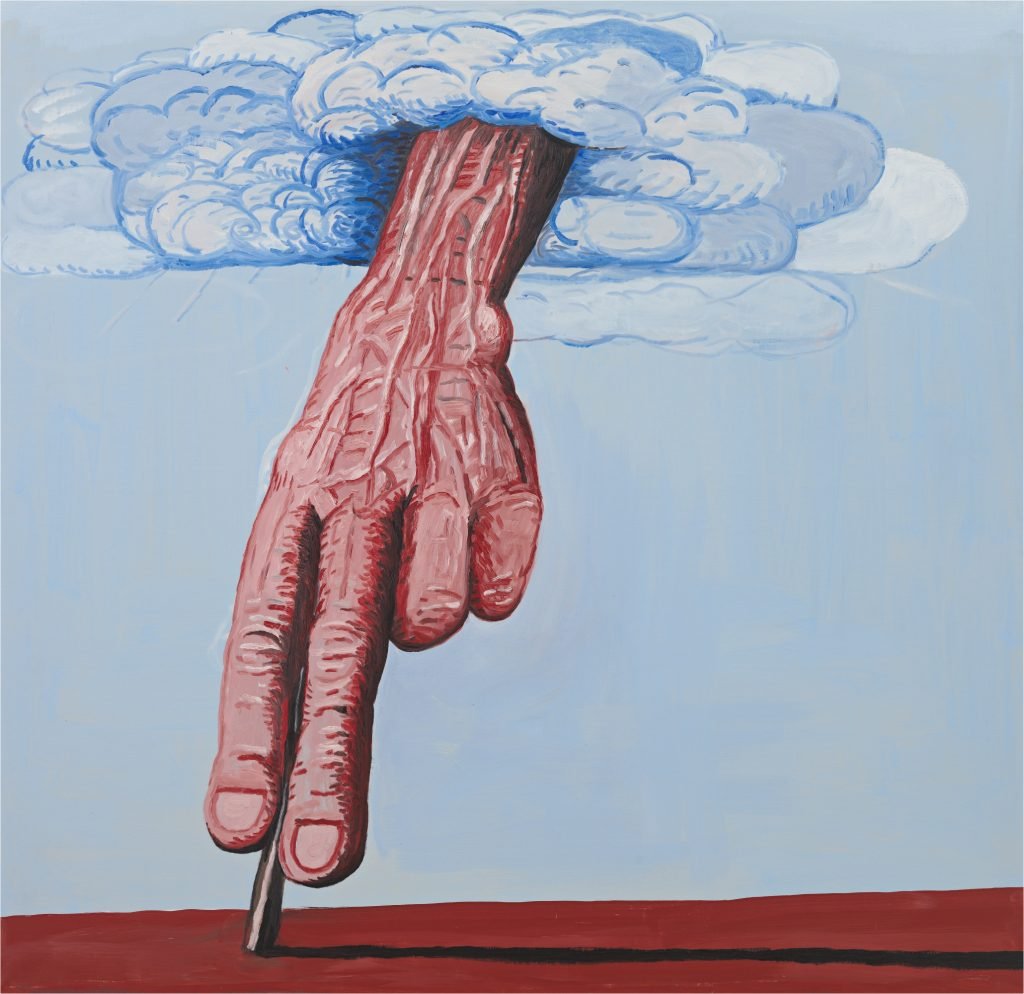
Philip Guston, The Line (1978). Photo: © The Estate of Philip Guston.
More Trending Stories:
Inspector Schachter Uncovers Allegations Regarding the Latest Art World Scandal—And It’s a Doozy
Archaeologists Call Foul on the Purported Discovery of a 27,000-Year-Old Pyramid
A Polish Grandma Found a Rare Prehistoric Artifact—And Kept It Quiet for 50 Years
Art Critic Jerry Saltz Gets Into an Online Skirmish With A.I. Superstar Refik Anadol
Your Go-To Guide to All the Fairs You Can’t Miss During Miami Art Week 2023
The Old Masters of Comedy: See the Hidden Jokes in 5 Dutch Artworks
David Hockney Lights Up London’s Battersea Power Station With Animated Christmas Trees